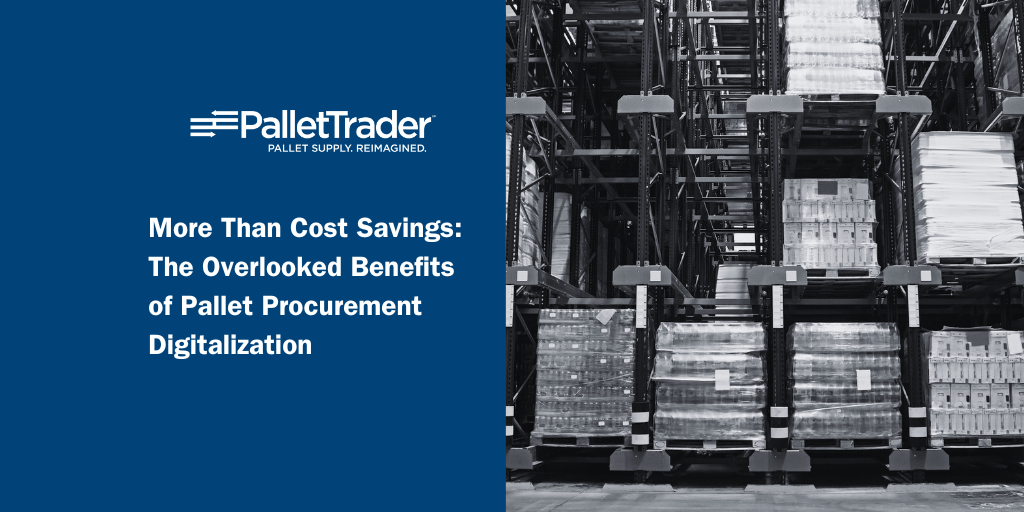The Importance of Diversifying Your Pallet Suppliers
By: Kevin Kull, SVP Sales & Operations, PalletTrader
Pallets are the unsung heroes of global supply chains. They sit under almost every product that gets made, shipped, or stored. But here’s the thing: companies often don’t think about pallets until they can’t get them or leadership is asking why the pallet category spend is so far off target. It’s easy to assume pallets will always be available or will remain cheap – until they’re not.
Shockingly, too many companies that depend on pallets have only one supplier. Smaller companies, in particular, tend to stick with one trusted source. After all, if you’ve been getting decent service and quality for years, why change? But let’s be real – in business, sticking with "what’s always worked" could be a risky strategy for any business.
The Real Risks of Sole-Sourcing
Sure, your single supplier might be delivering what you need today, but that doesn’t mean they’ll be able to deliver tomorrow. Supply chain disruptions are very real, and if you’re dependent on one source, you could find yourself in a bind.
Beyond the risk of not having pallets, sticking to one supplier could mean you're paying too much. When was the last time you checked pallet prices? It’s like always buying your gas from the same station because it’s familiar – but never noticing that everyone else is getting cheaper (and higher quality) gas just down the street. The same goes for pallet costs. If you’re not comparing prices regularly, you might be leaving money on the table.
Quality Matters Too
Quality is another factor that gets overlooked. Pallets come in different grades and conditions – and let’s face it, every supplier defines those grades differently. What some suppliers might call a Grade A pallet, is clearly a Grade B to another supplier. Without alternatives, you don’t have anything to compare it to, and you might settle for less-than-ideal quality just because it’s what you’re used to. And let’s be honest – do you know which pallet grade you are paying for and what you’re getting in return?
Diversification Gives You Leverage
Now, for the record, I’m not saying every company should have five pallet suppliers on speed dial. There’s no one-size-fits-all solution. If your volume and needs align with having a single supplier, and you’re confident in the quality, service, and market pricing - then great. But if you’ve got more at stake or your operations are growing, diversifying your pallet supply base can give you a real (and necessary) edge.
When you have multiple suppliers, negotiating leverage is just one benefit. If Supplier A wants to raise prices by 20%, you’ve got Supplier B or C to turn to. You also get a clearer picture of the market – both in terms of price and quality. This doesn’t mean the supplier is trying to take advantage of you either, it means the supplier's cost structures vary too.
Modern Solutions for a Modern Problem
So here’s the kicker: you don’t have to do all this legwork yourself. There are tech platforms that make sourcing and managing multiple suppliers easier than ever. With the right tools, you can obtain fair-market pricing, improve quality and consistency, as well as ensure supply availability - all with a click-of-a-button. All of this without you having to spend countless hours on the phone with different vendors, calling phone numbers from Google that may or may not even work.
The pallet market might not be the first thing that comes to mind when we talk about supply chain risks, but that’s exactly why it can catch you off guard – some have learned this the hard way already. Don’t wait until you have supply problems, or quality issues, or for the Chief Financial Officer (CFO) to come ask you why this pallet category is so far off target to then start thinking about your supplier strategy.
In the end, it’s about protecting your business. Diversifying suppliers isn’t just about avoiding disruptions – it’s about staying competitive on price and quality. If you rely on pallets to run your business, why limit yourself to one option?




